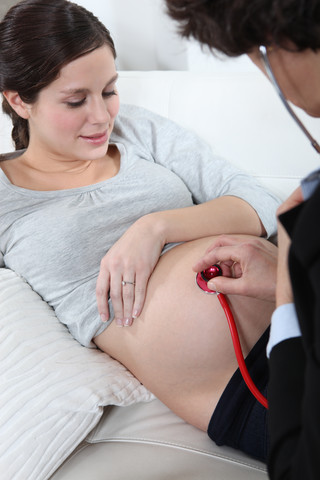Could fertility problems be caused by coeliac disease?
A new research project by the Regional Hospital Horsens and Aarhus University will clarify whether there is a correlation between gluten intolerance – also known as coeliac disease – and the fertility of Danish women and men.

Are the fertility challenges experienced by many men and women connected with an inability to tolerate gluten in their diet?
This and other related questions are being addressed in a new PhD project which PhD student and MSc in Public Health Louise Grode from the Regional Hospital Horsens has just started on.
"International studies show that between 0.6 and 8 per cent of women who suffer from involuntary childlessness suffer from coeliac disease and that many men with coeliac disease have experienced an abnormal impact on their sex hormones. However, the same studies have not been carried out on Danes," explains Louise Grode, referring to the fact that childless couples are not presently screened for coeliac disease.
But screening may in future help some Danish couples to have the children they desire.
"We are studying in various ways whether there is a correlation between the incidence of coeliac disease and fertility challenges. If our thesis is correct, it will provide a good argument for screening childless Danes for coeliac disease in the future. This is because if the couples are “only” childless due to coeliac disease and not other reasons, then a gluten-free diet may be able to increase their chances of achieving a healthy pregnancy," explains Louise Grode.
Expecting a great deal of interest
During the next two years, 420 couples will participate in the project. All of them will be women and men who are undergoing treatment at one of the public fertility clinics involved in the project, which is based at the Regional Hospital Horsens, where the Fertility Clinic, Medical Department and the laboratory provide the framework for the project.
All participants will have a coeliac blood sample taken when they first visit the fertility clinic. If the sample shows signs of coeliac disease, participants will be offered a gastroscopy, which is an examination of the intestines that can determine the final diagnosis.
Following this, all participants who are infected with coeliac disease will then be closely monitored and Louise Grode therefore expects to see a great deal of interest in participating in the project.
"For instance, it is documented that untreated coeliac disease in pregnant women increases the risk of the woman suffering a spontaneous miscarriage or of the child's growth in the womb being stunted. There is also evidence of the child being born prematurely and with a low birth weight," says Louise Grode.
"Participation is, of course, voluntary. But if you have undetected coeliac disease then it is important to get it diagnosed so that it can be treated, because there is a lot of evidence to suggest that this increases chances of becoming pregnant and giving birth to a healthy baby after a full pregnancy."
Facts:
- Five thousand Danes are diagnosed with coeliac disease, but many more may actually have the disease.
- Coeliac disease is an illness in the small intestine in which the intestinal surface is destroyed so that the absorption of nutrients is reduced. This means that the body is unable to fully utilise the nutrients from a person’s diet.
- The research project was launched by consultant and gastroenterologist Thomas Møller Jensen from the Regional Hospital Horsens and is being carried out in collaboration with Aarhus University and the public fertility clinics in Skive and Horsens.
- The project will run until 2018.
Further information:
PhD student, Master of Science (MSC), Public Health Louise Grode
The Regional Hospital Horsens, The Research Unit
Tel.: +45 2613 8939
louise.grode@horsens.rm.dk